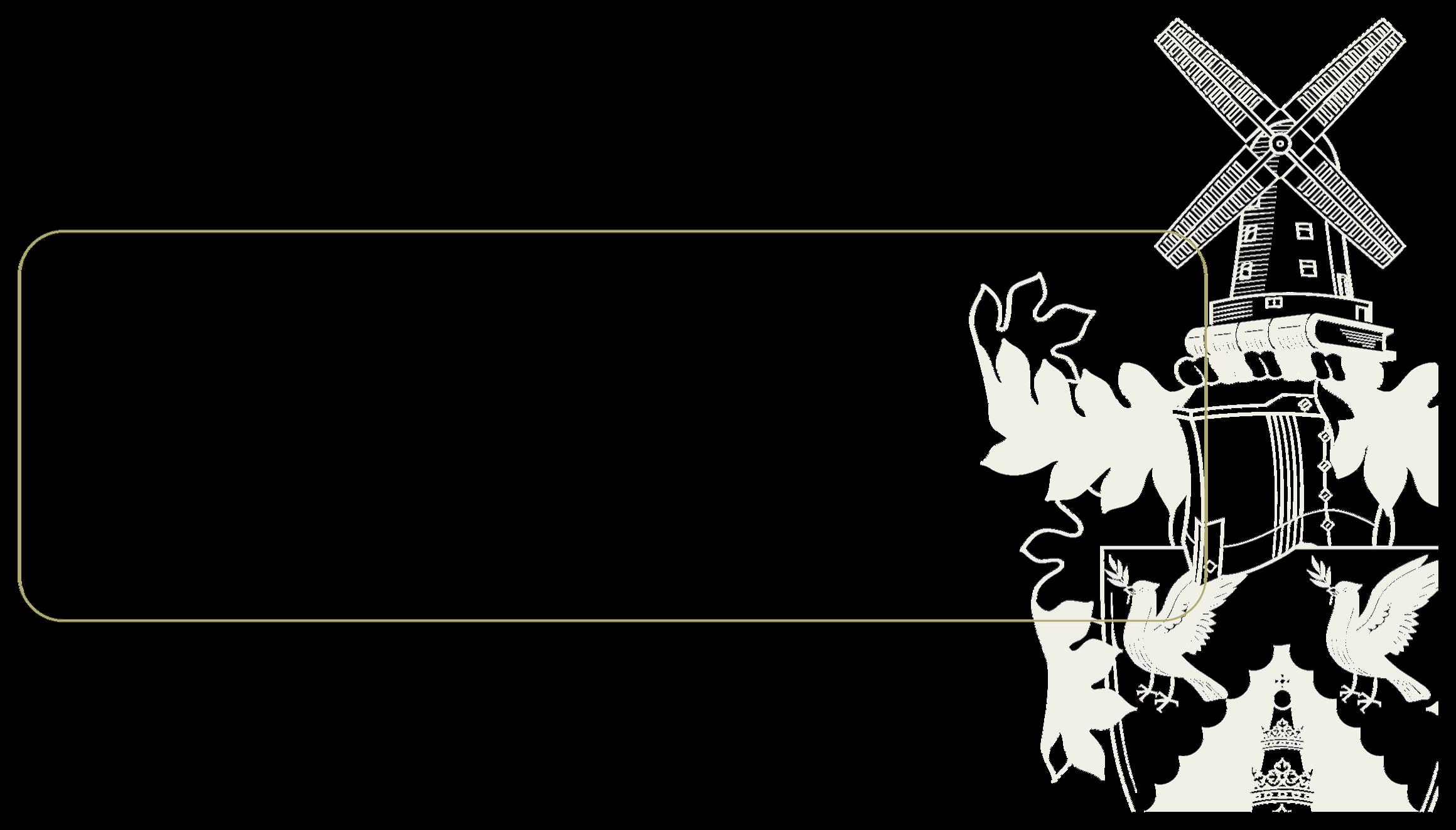

Sixth Form Options Booklet
Head of Sixth Form Introdu
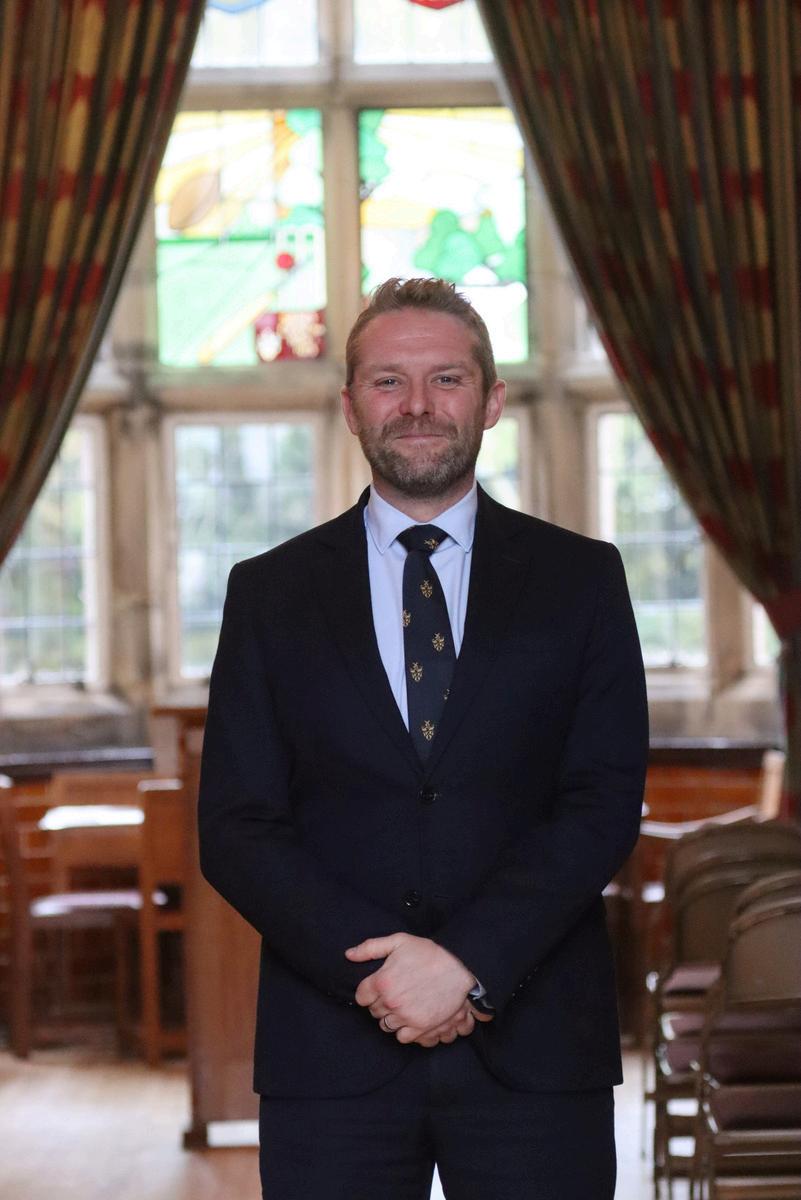
Mr G S Partington - Head of Sixth Form
Curriculum Introduction
We offer a full and varied curriculum including a wide range of A Levels and selected BTECs. All of these exciting courses are delivered by enthusiastic and gifted teachers operating in an excellent environment
After this brief introduction explaining how our curriculum works, each academic department is represented on a separate page. On each of these pages can be found an introduction to the specific departmental curriculum. This information is presented together with any relevant department-related co-curricular activity. Co-curricular activity is an integral and highly valued element of our wider curriculum at Kirkham Grammar School but we aim, in these pages, only to alert you to the breadth of it.
The table below shows how our curriculum is currently structured. The number beside the subject, activity or event indicates the number of school periods (of 1 hour in length) over our two-week timetable that are devoted to it.
Activity Periods Allocated
Head of Dept: Mr S P Gardiner
The main aim of the course is to impart a basic knowledge and understanding of Art and Design through the practice and study of the language, techniques and forms of the visual arts.
The philosophy governing the course is principally Formalist, emphasising the necessity to organise and structure the elements giving visual form to ideas, topics, etc in an aesthetically satisfactory way. Investigative, expressive and intellectual approaches are undertaken. The department has a Learning Journey illustrated map that outlines areas covered from the 1st Year to the Upper Sixth.
Fine Art and Photography’s main aim of the course is to impart a basic knowledge and understanding of Art and Design through the practice and study of the language, techniques and forms of the visual Photography and Fine Art are the two courses on offer
A wide range of materials and techniques in two and three dimensions is utilised in investigative, intellectual and expressive modes of working. Art appreciation is a significant element. A field trip to a European city to draw and photograph the city is a particularly exciting aspect of the course that directly links with the examination element. Previous trips have been to Berlin, Florence, London, Paris, Rome, Siena and New York.
Co-Curricular
Trips to galleries is a vital part in pupils' visual education with all year groups visiting galleries. Previous trips include city trips to London, Manchester and Liverpool with visits abroad that include Berlin, Florence, London, Paris, Rome, Siena and New York.

Head
of Dept: Mrs P Halloran
Biology is a subject that affects many aspects of our lives, such as the food we eat, our health and interactions with the environment. We aim to foster a keen interest in human body systems and natural history and an awareness of the exciting developments occurring in biotechnology, microbiology and medicine. An investigative approach, through practical work, is encouraged in all year groups which, together with project work and presentations, develops a broad understanding of scientific principles.
The Course
A Level qualifications are linear which stipulates that pupils will sit all the A Level examinations at the end of their A Level course
In addition to the course content, pupils are required to demonstrate competency in a range of scientific skills in the 12 practicals stipulated by the AQA board. To support the Ecology unit in the A Level, all pupils are required to attend a field course to develop their analytical and numeracy skills using both quantitative and qualitative data they have collected. Pupils will explore a range of habitats and put into practice the scientific investigative skills they have acquired throughout the course.
Co-Curricular
Sixth Form Ecology Field Trip – Rhyd-y-creuau
Lower Sixth – Biology Live
Upper Sixth – Biology Olympian
Upper Sixth – Revision Day
Upper Sixth – Revision Webinars
Upper Sixth – Mathematics for Biologists Seminars Science Week – A range of activities


Head of Dept: Mr J Unsworth
The course followed at Kirkham Grammar School is the BTEC Level 3 National Extended Certificate in Sport.
THE COURSE
Unit 1: Anatomy and Physiology
Learners explore how the skeletal, muscular, cardiovascular and respiratory systems function and the fundamentals of the energy systems. This unit is assessed externally with a 1.5 hours written examination set and marked by Pearson.
Unit 2: Fitness Training and Programming for Health, Sport and Wellbeing
Learners explore client screening and lifestyle assessment, fitness training methods and fitness programming to support improvements in a client's health and wellbeing.
This unit is assessed externally with a task which is externally set and marked by Pearson and completed under supervised conditions.
Unit 3: Professional Development in the Sports Industry
Learners explore the knowledge and skills required for different career pathways in the sports industry. They will take part in, and reflect on, a personal skills audit, career action plan and practical interview assessment activities
This unit is assessed internally through various tasks and is moderated externally by Pearson
Unit 4: Practical Sports Performance
Learners study the skills, techniques, tactics and rules of selected sports through active participation in individual/team sports. This unit is assessed internally through various tasks and practical sessions and is moderated externally by Pearson.
Head of Department: Miss L Newton
There can be few careers where business knowledge would not be useful. Studying Business can lay a foundation of key transferable skills to use in the workplace and make you a valuable asset to firms from any industry. With a strong knowledge of business theories and concepts, pupils in this subject can be highly employable in areas such as advertising, banking, finance, personnel management and logistics, in both public and private sectors.
This course provides a broad overview of the economy and how the commercial world operates. It develops key attributes sought by employers such as critical thinking, analytical skills and evaluative judgement, as well as numeracy and the ability to research and interpret business data.
This A Level business course introduces you to all you need to know about working in business, providing a solid foundation for further study. With a focus on helping you to become a good decision maker, you will learn essential managerial skills, alongside techniques to help you become an analytical problem solver. These skills are all highly sought after and valued in a wide range of careers.
Trips to Visit Businesses
Putting business into a practical context is a very important way of raising pupil awareness of the relevance of the subject and the importance of the business sector to all our lives Several trips, revision days, competitions and speakers from industry are arranged each year and are closely linked to the demands of the syllabus and provide an excellent opportunity for our pupils to network and importantly, develop qualities of responsibility, leadership and self discipline.
Further study and career opportunities
If you would like to study business, finance or management at university, A Level Business provides an excellent foundation. The skills you learn are transferable across a broad range of subjects and careers.

Head of Department: Dr A Rollins
Chemistry occupies a central position amongst the Science subjects. On the one hand it is linked to Physics through Physical Chemistry whilst on the other to Biology through Organic Chemistry.
Chemistry is of fundamental importance in many careers such Medicine, Pharmacy, Veterinary Science, Agriculture, Petrochemicals, Engineering, etc, and the disciplines of the subject make it well accepted as a basis for other non-science-based careers such as Law and Accountancy.
At Kirkham Grammar School we aim to make the study of the subject both interesting and enjoyable whilst at the same time developing essential skills, knowledge and an awareness of the importance of Chemistry to life.
At A Level, Paper 1 examines the relevant Physical Chemistry, Inorganic Chemistry and Practical Skills.
Paper 2 examines the relevant Physical Chemistry, Organic Chemistry and Practical Skills.
Paper 3 examines any of the content and any Practical Skills. The A Level examinations will all be taken at the end of the A Level course. It is a linear course.
Co-Curricular
First Year:Science Club – weekly First, Second, Third YearForensics Club
Fourth and Fifth Year:Chemistry Support Club – Tuesday evenings, Wednesday lunchtimes
Sixth Form:Royal Society of Chemistry (RSC) Olympiad RSC Chemistry in a Suitcase Visits to local University Departments
C3L6 Chemistry Challenge - Cambridge University Chemistry Clinic - weekly Extended Project Qualification (EPQ) D of E voluntary work with science club

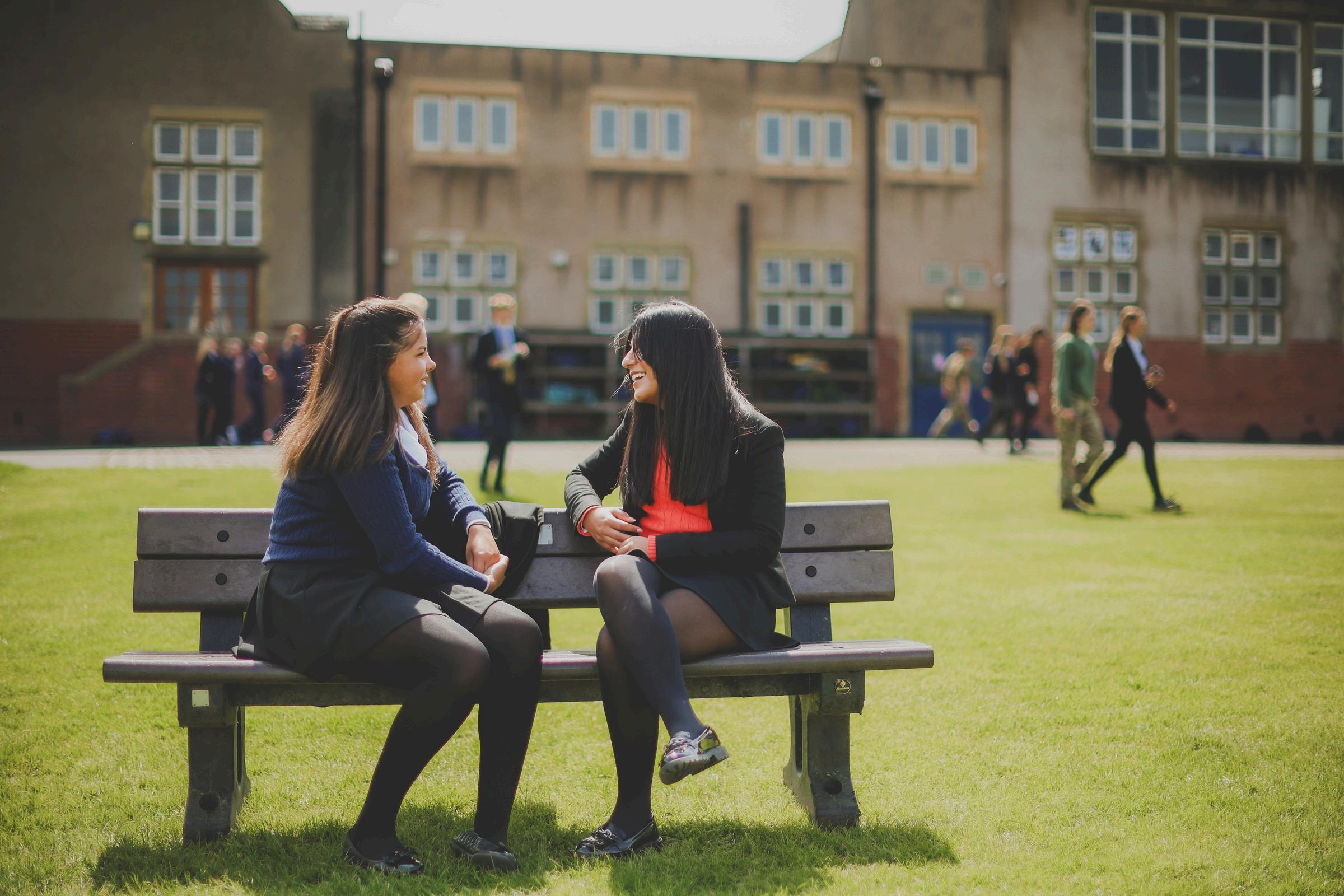
The Classics Department's aim is to open up the classical world to curious young people. It achieves this by introducing a range of new and interesting ideas and concepts, including the Classical languages, to enable pupils to have direct access to literature and other aspects of the ancient world. Through this, pupils gain a stronger appreciation of the roots of European languages and culture and are better placed to view current issues with a greater depth of understanding.
Pupils continue to develop the skills learned at GCSE More emphasis is placed on the reading and analysing of literary texts at AS Level and A Level, translation of both prose and verse is undertaken, and there is the option to develop the skill of translation into Latin.
A Level Classical Civilisation
This qualification provides pupils with a broad and rewarding study of the classical world. Pupils have the opportunity to study elements of the literature, art, history, and thought of the classical world while acquiring an understanding of their social, historical, and cultural contexts.
Classical Greek Language
There is a Greek Club to enable pupils to gain a wider experience of Classics, to supplement their study of Latin. Pupils can prepare for the OCR GCSE in Classical Greek
Co-Curricular
Trips are arranged to Roman sites within Britain, such as Hadrian's Wall, and to Classics lectures, open days, and plays, when appropriate.
Head of Department: Ms. Theresa Russell
Computer Science is a discipline that spans theory and practice. Nowadays, practically everyone is a computer user, and many people are computer programmers. Understanding how a computer works allows us to use them more meaningfully.
Computer Science qualifications nurture computational thinking and help pupils to develop the skills to solve problems, design systems and understand the power and limits of human and machine intelligence. We aim to provide courses that encourage pupils to become adept at modelling and analysing problems. They develop the skills to design solutions and verify that they are correct through precision, creativity, and careful reasoning
Computer Science has a wide range of specialties for pupils to develop into such as computer architecture, software systems, graphics, artificial intelligence, computational science, and software engineering.
A Level Computer Science comprises of three units as follows:
Unit 1 – Computer Systems – Written examination: 2 hours 30 minutes (40% of A Level): Theoretical knowledge of Computer Science
Unit 2 – Algorithms & Programming – Written examination: 2 hours 30 minutes (40% of A Level): Scenario based knowledge
Unit 3 – Programming Project (20% of A Level): A practical project
Co-Curricular
The Computing department runs a Coding Club every week where Key Stage 3 pupils are encouraged to stretch their interest into other areas, such as robotics using LEGO EV3 Robotics supported by Key Stage 4 pupils. All pupils who have computing lessons are entered into the annual Bebras Computational Thinking Competition.
The Computing Department also organise regular trips to Bletchley Park, North West Computing Museum, Cisco 'Kids in IT' Day and Silicon Valley USA. ICT facilities throughout the school are widely available for pupil use.
Head of Department: Miss B Leeming
Drama plays a vital role in a child's development into a confident and collaborative member of the community who can approach a range of situations with articulacy, empathy and selfdiscipline The many and varied opportunities afforded within and beyond the Drama curriculum aim to develop these skills whilst also introduce pupils to performance skills from a range of companies and global cultures.
However, the rigorous academic demands of both the GCSE and A Level courses also enable pupils to advance their own critical awareness; practical problem-solving skills; appreciation of historical and social contexts; imagination; and specific technical and production methods. Senior School
Throughout the A Level course, pupils will broaden and deepen the knowledge, skill and understanding acquired from the GCSE. They will be able to make connections between different theatre practices and dramatic forms, and to comment analytically on their significance. They should be able to appreciate different styles of drama and approaches to theatre and apply these appropriately. At A Level, there is an increased demand on pupils to use their independent study time to carry out in-depth research and reflection on their work. Pupils will complete the study of five different texts, analyse at least one full production in detail and create a sophisticated original piece of work
Co-Curricular
We aim to offer at least one theatre trip to each year group per academic year in order for them to enjoy a range of productions throughout the Lower School. Trips become more regular and compulsory during the study of the GCSE and A Level courses. We also regularly invite professional theatre companies to visit the school and lead workshops that are linked to the curriculum work
There is a Junior Drama Club for each year group who are already interested in the subject to develop their skills further and be challenged by different scripted extracts, devising tasks and more difficult games!
The annual senior school production brings all pupils together to produce a show which is performed to parents, friends, family and the wider school community. Pupils are encouraged to get involved with everything from acting to providing the music, technical support, set design and being the backstage crew
GCSE and A Level pupils will also have the opportunity to attend an annual residential trip to London or New York. This is intended to focus on a specific culture or area of performance that will enhance and support curriculum work through professional workshops and excursions.
Head of Department: Miss
L Newton
There has never been a better time to start studying Economics. As a highly regarded academic discipline, the knowledge and skills that pupils develop through this course enhance career opportunities for a broad range of industries.
Do you ever wonder why: Raheem Sterling earns more in a day than teachers earn in a year? Petrol prices keep rising? The pound changes in value all the time? The government, rather than private firms, provide street lamps? The cost of living is rising so rapidly in the UK? A hot summer helped the economy to grow?
The study of Economics will provide the answers to these questions and many more. It will change the way you look at the world and help you understand the underlying theory and arguments behind a wide range of issues.
Economics is studied as a full A Level over two years. In the first year, both micro and macro-economics are studied. The micro module investigates how different markets work, why they fail and what can be done when they do fail. In the macro module, pupils will learn how the government attempts to control and manage the economy through economic policies aimed at maximising the welfare of producers and consumers.
In the second year, there is a greater focus on competition and international trade Pupils will consider business economics and debate whether monopoly markets are good or bad The patterns of international trade and the influence of China and other emerging economies will also be discussed
An interest in the news is essential Pupils will need to learn key Economic terms, analyse and evaluate issues and apply Economic theories to different real life scenarios. Pupils will need to construct, explain and provide a critical understanding of diagrams.
Economics provides an excellent springboard for any business, management, finance or accounting degree as some elements of these degree courses will have an Economics component. Pupils considering an Economics degree should also study Mathematics. AS Economics is very career related, it combines well with any subject at AS and A Level especially Mathematics, Politics and Geography.
Co-Curricular
A variety of activities are planned including competitions, revision days and speakers from industry to enrich the study of Economics.
Head of Department: Mrs G Latham
English is a department, we take pride in developing the enjoyment of reading and writing in a disciplined atmosphere of mutual respect. Correct written English is very important to us; so too is creativity, a quality that we aim to foster in our teaching
English is, of course, a vital subject in that the skills covered underpin the whole curriculum. Moreover, any course of study beyond GCSE demands proof of achievement here, and literacy skills are necessary for the world of work. Perhaps more importantly, however, the study of English equips young people with the communication skills that allow them to present themselves confidently, encourages creativity in written and oral expression, and develops a love for literature that will last a lifetime.
English Language and English Literature have one external paper and a coursework component.
The English Language course involves the study of the way we use language not just as a communication tool, but to reflect attitudes, biases and reinforce - or challenge - societal norms. We analyse language (both oral and written) in use in real situations; the subject is an exciting and empowering one for pupils, as they are, naturally, already expert users of language!
English Literature allows pupils to widen their literary knowledge and to develop and trust their own critical faculties whilst studying a range of texts from a variety of genres and contexts Texts read range from the 14th to the 21st centuries; pupils focus not just on textual knowledge, but on the reasons for the writer's linguistic and structural choices, on assessing the validity of critical opinions, and on how the context both of the text and the reader affects how the text is read.
Co-Curricular
Theatre trips, theatrical company visits to the school, various visiting speakers, cultural visits and numerous national competitions are offered annually.
Head of Department: Mrs
M Roberts-Hodgson
Modern geography is far more than merely maps. It is people and places and the interaction between us and our environment – both physical (or natural environment) and the human world we have created. There are many issues to study: How we live compared to people in the less developed world, how we use our resources and how wasteful we can be, whether we need alternative sources of energy and how can we sustain the future demands to power our home, factories, cars and other luxuries? We also look at how the earth came about and study the formation and processes affecting the natural world and how we can and have changed them.
Much of this is taught by active learning and much stimulus from visual sources, images and first-hand experience, as in fieldwork and visits. We stress to the pupils that the future of our planet is important and that it can be affected and altered by their actions.
Senior School
The A Level Geography course is based on the fundamental issues of the water cycle and carbon cycle before moving into a study of landform systems and global governance. Topics to study include hazards, hot deserts, migration and globalisation. There is also an emphasis on how places and spaces can and do change, as well as an important fieldwork and geographical skills element. All pupils are required to complete fieldwork activities and there is a resulting cost Every pupil must also complete an individual investigation This course looks at aspects of both physical and human geography and has a skills and enquiry theme running through it The course will be of interest to anyone wanting to know more about the ever-changing world around them, and links both 'arts' and 'sciences' themes. A Level Geography continues to be a fascinating and rigorous programme of study that helps prepare pupils for a wide variety of further study and careers.
Co-Curricular
Recent fieldwork locations include The Bay of Naples, Iceland, the west coast of the USA, Ingleton, The Trough of Bowland, The River Brock, Malham and Clitheroe. All pupils are given the opportunity to conduct fieldwork. The department also runs trips to local lectures organised through the Geographical Association and Lancaster University.
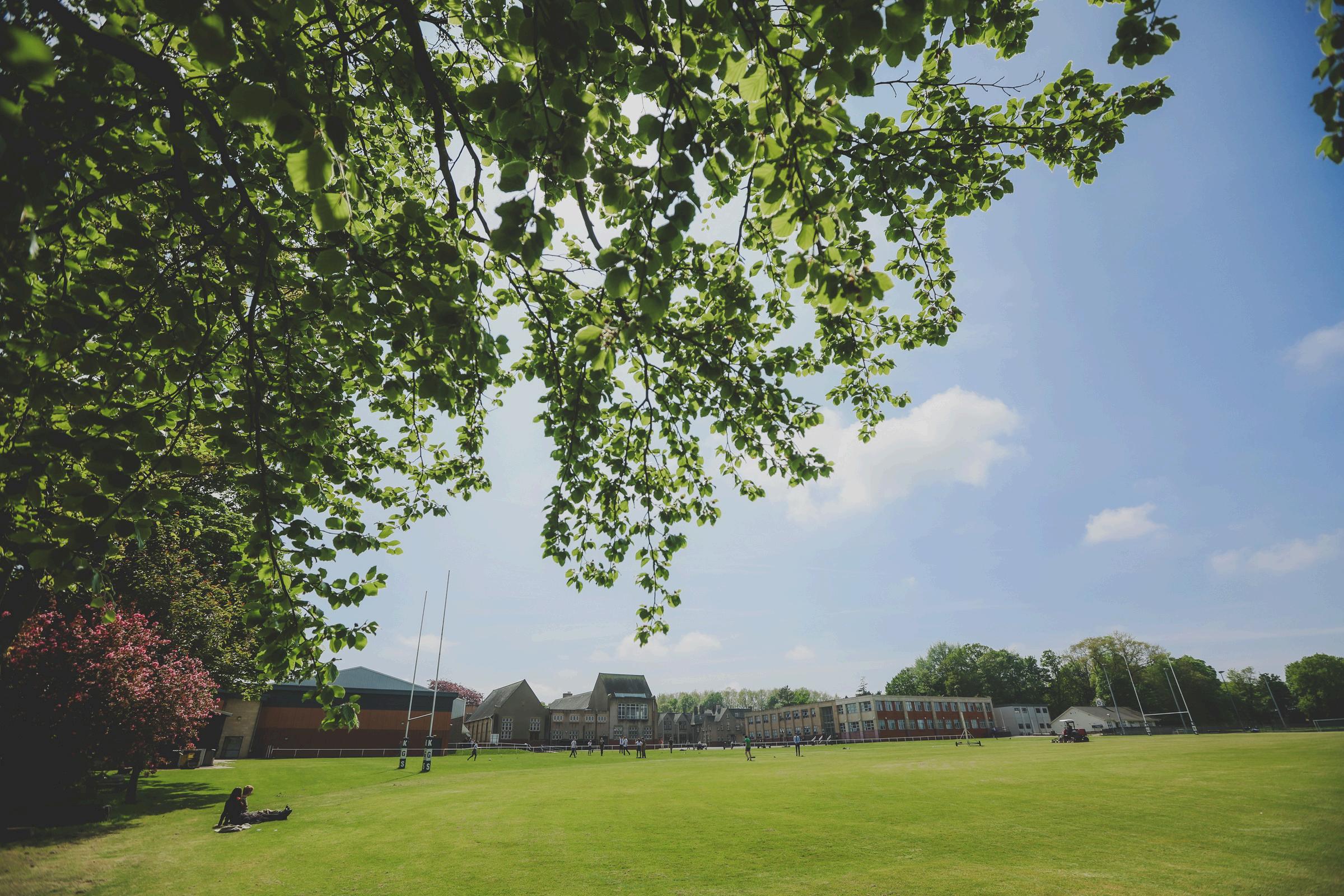
"Head of Department: Mrs H Atkinson
If you don't know History, then you don't know anything, you are a leaf that doesn't know it is part of a tree" - Michael Crichton - Timeline.
History is a stimulating and enjoyable experience and it is the aim of the department to develop the following objectives:
To stimulate an interest and enthusiasm of studying the past.
To allow each pupil to develop an understanding of how the modern world has developed.
To develop an understanding of different peoples in different times.
To develop an understanding of course and consequence, similarity and difference, continuity and change.
To develop study skills including the ability to locate, record and organise information and to construct a logical argument.
To understand that historians have different opinions of events and understand how and why they have occurred.
To develop an interest and enjoyment of the past and the many varied ways in which it manifests itself.
To allow pupils to develop their communication skills, both written and oral through group work and/or working alone.
Overall, the aim is to develop and enrich each pupil's educational experience through the study of history using lively, interesting and stimulating methods Each year follows a learning map and each topic is set as a 'big question'
Senior School
Lower Sixth Form elements are:
Russia 1894 – 1941
Britain 1900 – 1951
Upper Sixth Form elements are:
Historical Investigation
Popular Culture and the Witch craze in 16th and 17th Century Europe and North America.
Head of Department: Mrs
D Binns
Mathematics forms an integral part of everyday life. All things we take for granted rely on Mathematics to some extent, from mobile telephones to air travel It is also vital for many other subjects studied at Kirkham Grammar School For this reason, a strong foundation in this subject is essential.
Our approach to the teaching of Mathematics is primarily traditional with the use of investigations where appropriate, giving the pupils a firm grounding in the subject whilst also developing their problem-solving skills and ability for logical thought.
A Level Mathematics and A Level Further Mathematics.
The new reformed Mathematics A Level taught from September 2017 is 100% prescribed and is made up of three externally assessed 2-hour papers, each being equally weighted and with no coursework. The pupils are allowed to use a calculator on all three papers:
Paper 1 – Pure Mathematics 1
Paper 2 – Pure Mathematics 2
Paper 3 – Statistics and Mechanics
The new reformed Further Mathematics A Level taught from September 2017 is made up of four externally assessed papers 1 hour 30 minutes long, each being equally weighted and with no coursework:
Papers 1 and 2 are prescribed and made up of Pure Mathematical content. Papers 3 and 4 may be taken from Further Pure Mathematics, Further Mechanics, Further Statistics or Decision Mathematics modules.
Co-Curricular
Mathematics support is available at lunchtime for pupils to ask questions and receive extra help where required.
UKMT National Mathematics Challenges (external competitions for Second Year, Fourth Year and Sixth Form pupils).
Further Mathematics (AQA Level 2 Certificate in Mathematics for more able Fifth Year pupils).
Mathematics Master Classes at Lancaster University Mathematics Department (for selected Fourth Year pupils)
House Mathematics (internal competitions for all year groups including Sixth Form pupils).
The Mathematics department also organises the entries for the STEM Engineering competition – "If you were an engineer, what would you do?"
Liverpool University Maths Challenge competitions.
Head
of Department: Mrs A Johnson
"Monolingualism can be cured."
At Kirkham Grammar School we aim to encourage our pupils to understand and communicate at an appropriate level in French, German and Spanish, countering the all-too popular notion that the British cannot speak other languages. All pupils are also encouraged to gain an understanding of and an insight into contemporary French, German and Spanish speaking cultures.
Appopriate ICT tasks are offered at all levels on a regular basis to practise and extend material taught.
We offer modern language teaching which is both rigorous and enjoyable to foster good learning and promote a European perspective.
French, German and Spanish
The syllabus explores a range of topics within the wider themes of social issues and trends, political and artistic culture, and literary texts and films. Grammar covered at GCSE is revisited and extended, to include more advanced language concepts such as the passive, subjunctive and modality.
Co-Curricular Linguistic and cultural activities and events to complement curriculum themes
European Trips to France, Germany and Spain.
Head of Department:
Mr M Hodgkinson
At Kirkham Grammar School we aim to provide the opportunity for each pupil to develop their own musicianship, providing a range of opportunities for both performance and composition. We aim to enable pupils to listen to a wide range of musical styles and to develop an understanding of world music.
We believe that music plays a central part in life and that a deeper understanding of music can help deepen the love of music for the individual. ICT plays a central part in our work, with electronic keyboards being used throughout the school and PCs and Macs running Sibelius ultimate software being used extensively.
A Level Music continues to build upon the three elements covered throughout GCSE (listening, composing and performing) with pupils undertaking listening work based upon the study of the Western Classical Tradition 1650 - 1910 and a choice of two areas of study A selection of compositional and theoretical options is then coupled with a range of performing opportunities.
Co-Curricular
Musical activities include the Concert Band, Orchestra, Swing Band, String Group and Flute Group. Pupils from the First Year upwards may join the School Choir.
There are numerous informal music ensembles in school including the Soprano Group.
The school has an annual series of formal concerts, which are held in Summerlee Hall, as well as Year Concerts and a series of monthly lunchtime Coffee Concerts that are held in the Recital Hall.
Visits to concerts are organised and members of the Fourth and Fifth Year and Sixth Form groups regularly visit the BBC in Manchester for Meet the Phil sessions.
Opportunities exist for pupils to perform as part of ensembles outside of school, which includes local choral societies, Band of the King's Division, local brass bands, as well as county youth ensembles and those of the RLPO and Hallé orchestras.
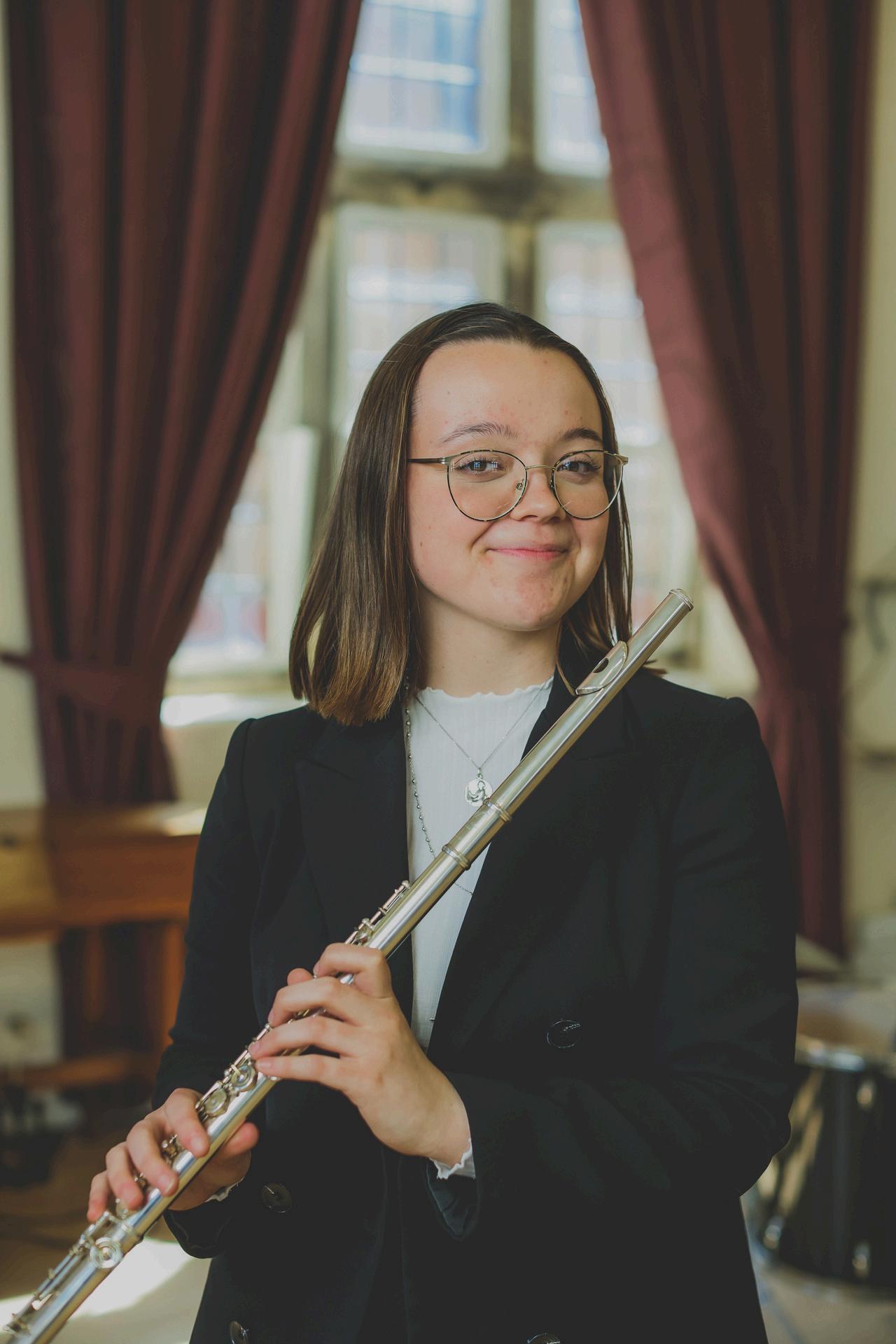
Head of Department: Mr M Hiller
The Physics curriculum at KGS is designed to enthuse and inspire pupils, whilst equipping them with the key skills required for their future studies. Experimental work is at the heart of the subject, which engages learners and encourages a logical approach to analysis of results and application of understanding.
In the Lower Sixth, the Year 1 course content includes the study of Measurements and their Errors, Particles and Radiation, Waves, Mechanics and Electricity.
The Year 2 course content includes the study of Further Mechanics, Thermal Physics, Fields, Nuclear Physics and Special Relativity Some pupils may opt to study Astrophysics, Medical Physics, Electronics or Engineering
Head of Department: Mrs L Osborne
Kirkham Grammar School's Physical Education and Games department is dedicated to providing an unparalleled experience for all pupils. Our comprehensive programme allows pupils to excel in a wide range of sports while simultaneously benefiting from a diverse and well-rounded curriculum. Pupils have ample opportunities to represent the school in our highly competitive fixtures programme, spanning numerous team and individual sports. Alternatively, they can engage with the variety of activities available within our curriculum and at club practices. A fundamental principle guiding all our work in PE and Games is a commitment to pupil well-being and the integral role of exercise in promoting and maintaining fitness.
All pupils at Kirkham Grammar School participate in timetabled Physical Education and Games lessons Furthermore, pupils can purse formal qualifications in Physical Education at GCSE, BTEC and A Level These academic pathways can lead to advanced study and fulfilling careers within this dynamic and expanding sector of society.
Board: AQA
Paper 1 (35% of A Level)
Paper 2 (35% of A Level)
Non-exam assessment (30% of A Level)
This specification takes a multi-disciplinary approach, encouraging the development of different methods of study and enquiry from a wide range of disciplines, with the focal point being the performer and the performance. This A Level qualification is linear.
Representative teams
Athletics
Club activities
Athletics Netball

Head of Department: Mrs J Stanbury
The Psychology Department provides a challenging, intensive and enriching educational experience. It is designed to introduce pupils to current research, encourage active involvement via group discussions, presentations and workshop activities
There are many reasons for studying Psychology ranging from career aspirations to intrinsic interest. Psychology is accepted and perceived as an academically demanding A Level for 99% of current undergraduate courses and therefore is eclectic in its educational value It is particularly useful for medicine, allied NHS careers and Law.
The specification is linear and pupils will be tested at the end of two years via three examination papers (each paper being two hours long).
Psychology involves 'the scientific study of mind and behaviour' Pupils are given an overall view of several major perspectives in Psychology and will concentrate on seven areas over the two years:
Cognitive Psychology (the study of memory and eyewitness testimony)
Developmental Psychology the study of attachment and institutionalisation/ Romanian orphanages
Forensic Psychology (biological and psychological theories of offending (Option 1)
Schizophrenia (Option 2) - year 2
Relationships (Option 3) - year 2
Psychopathology - OCD, depression, phobias - year 1
Social Psychology (social influence) - year 1
Humanistic Psychology (Year 2)
Psychodynamic Approach (Year 2)
Research design and statistics will also be taught as part of Year 1 and consolidated and extended in Year 2. After successful completion of Year 1, pupils progress to studying theoretical aspects of psychology including issues and debates such as free will and determinism, the nature/nurture debate and socially sensitive research.
This large compulsory philosophical element to the final year known as the Issues, Debates and Approach section (IDAs), includes whether psychology is a science in conjunction with future research design and statistics. Psychology and its impact on the economy and real-world application of psychological research. Examination Structure (A Level linear) - each paper is worth 96 marks Paper 1 (2 hours)
Consists of the topics of Social Influence, Memory, Attachment and Psychopathology Paper 2 (2 hours)
Consists of approaches in Psychology, Biopsychology and research methods. Paper 3
A compulsory section on Issues and Debates and questions on Relationships, Schizophrenia and Forensic Psychology, although these topics are subject to change dependent upon pupil interest. Research methods questions are present on all 3 papers
Up to date research can be accessed through the Psychology Twitter Feed and the use of several apps suggested by subject staff.
Research methods are assessed throughout and biological psychology is explicit The Government requirements for this specification are that 25-30% of Psychology assessment should focus on research methods and 10% is mathematical content.
Co-Curricular
Attendance at pupil conferences Sixth Form Film Society Participation in local university research studies Guest speakers relating to course content. Webinar courses. The department actively encourages the use of social media to extend psychological knowledge and appropriate websites will be shared with pupils
Head of Department:
Mrs Lisa Bowles
Pupils at Kirkham Grammar School study a range of religions. In today's multi-cultural society, we believe that it is imperative for our pupils to gain a full and balanced understanding of world faiths Through the study of Religion, Philosophy and Ethics we aim to assist pupils in their search for meaning and purpose.
The department sets out to ensure pupils have an appreciation for the religious and spiritual dimension of life, both their own and that of others. Through the use of ICT, drama, imaginative work and discussion, the department aims to engage pupils of different learning styles and backgrounds
Religious Studies A Level Board: Eduqas
Pupils study three components for A Level.
Component 1: Christianity
Component 2: Philosophy of Religion
Component 3: Religion and Ethics
Each component has equal weighting
Christianity
Pupils will study the religious figure of Jesus and beliefs about him as a Messiah; a Christ and God incarnate. Religious concepts, such as the trinity, atonement, faith and morality will also be discussed. Social and historical developments within the religion are also looked at, including secularisation, feminism, science and migration Finally, religious practices will be studied
Philosophy of Religion
The philosophy course looks at debate and discussion on attempts to prove the existence of God. It also looks at challenges to religious belief, like the problem of evil and differing psychological approaches leading to the rise of atheism. This continues with an exploration of religious experience and religious language
Religion and Ethics
All three aspects to studying moral philosophy/ethics are covered by the course; normative ethics, applied ethics and meta-ethics. Normative ethics takes the bulk of the course (Virtue Ethics, Natural Law, Situation Ethics, Utilitarianism) which are then applied to a variety of given issues. For example; abortion, euthanasia, capital punishment, immigration, homosexuality, polyamorous relationships, animal experimentation and nuclear weapons Meta-ethical debates are looked at in detail, as are the arguments put forward by freewill and determinism.
Co-Curricular
Pupils have the opportunity to take trips to enhance their religious and cultural knowledge
Visitors are arranged when appropriate.
Pupils are taken to appropriate revision conferences if available at GCSE and A Level.
Combined Cadet Force
Sport Scholarship Assessment Day 1*
Wednesday 10 December 2025
Sports Scholarship Assessment Day 2*
Tuesday 17 March 2026
Drama Scholarship Assessment
Wednesday 18 March 2026
Music Scholarship Assessment
